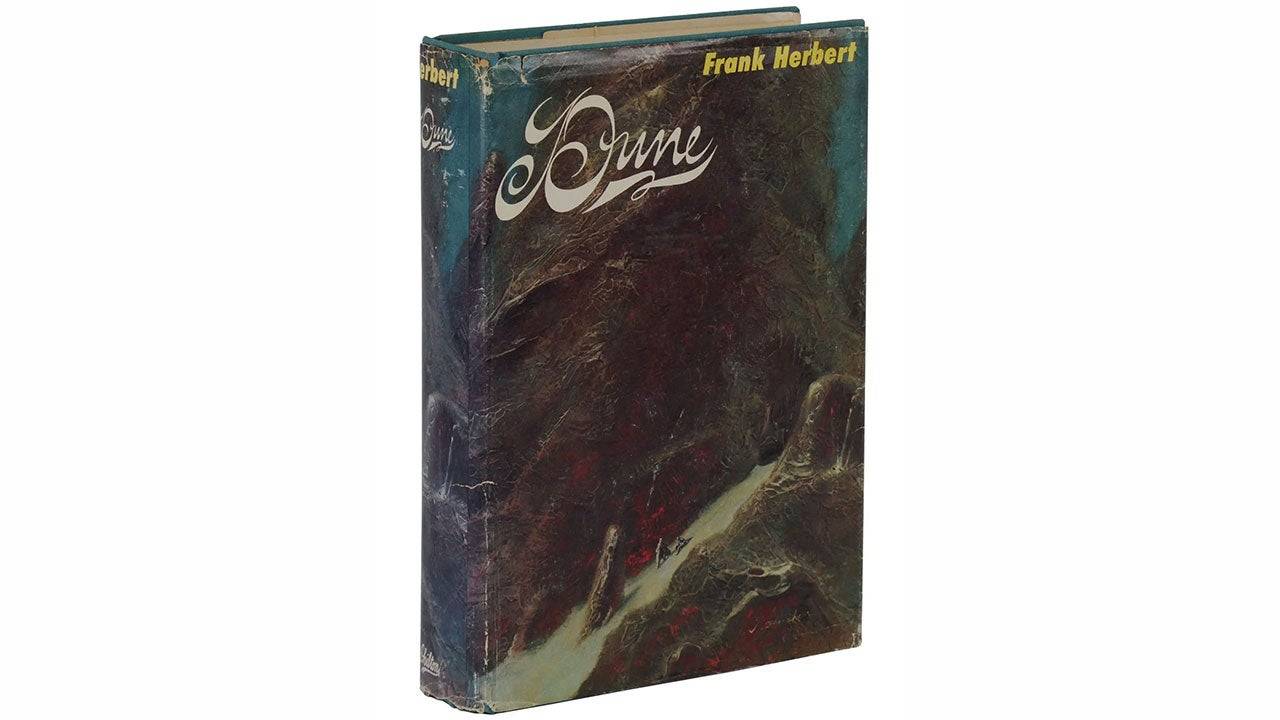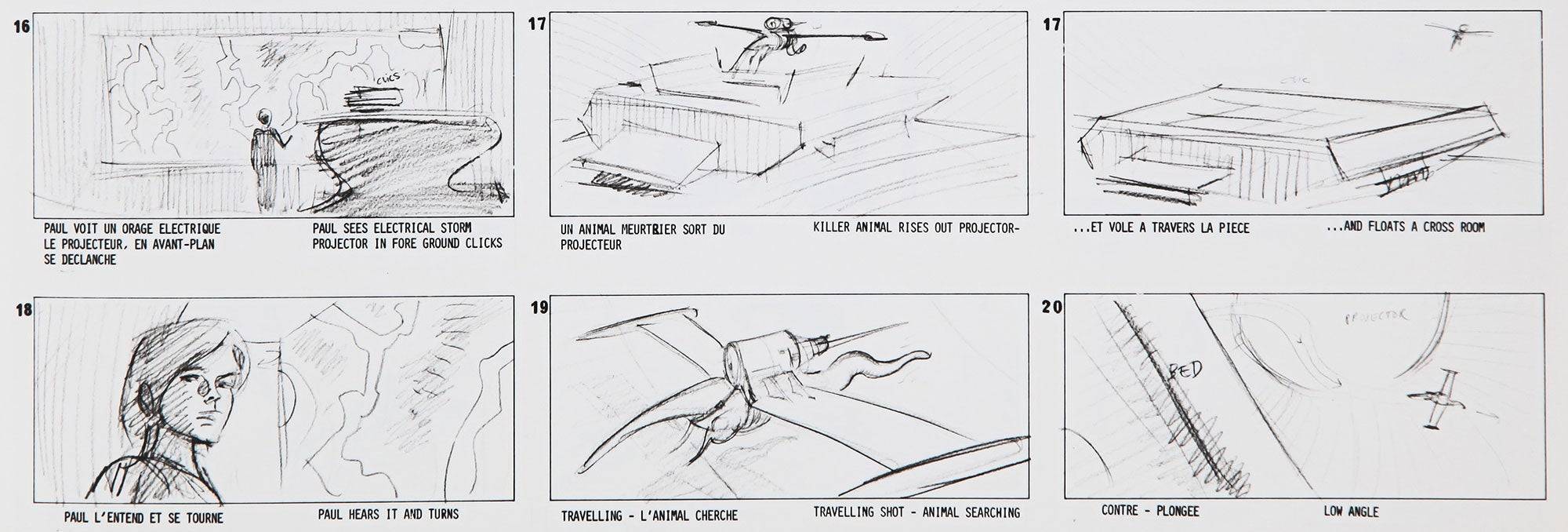Ridley Scott's Lost Dune: Unveiling a 40-Year-Old Script
This week marks four decades since David Lynch's Dune premiered, a box office flop that later cultivated a devoted cult following. This stands in stark contrast to Denis Villeneuve's recent big-screen adaptation of Frank Herbert's classic novel. Ridley Scott's involvement, before Lynch took the helm, has remained largely mysterious until now.
A 133-page draft of Scott's abandoned Dune screenplay, penned by Rudy Wurlitzer in October 1980, has been unearthed from the Coleman Luck archives at Wheaton College. This discovery sheds light on Scott's vision, a significant departure from Herbert's original screenplay and Villeneuve's interpretation.
Frank Herbert's initial screenplay, while faithful, lacked cinematic flow. Scott, after engaging Wurlitzer, aimed for a page-one rewrite, envisioning a two-part adaptation. Wurlitzer's script, while capturing the novel's essence, infused a distinct sensibility. Scott himself later described the script as "pretty fucking good."
Several factors contributed to the project's demise: the death of Scott's brother, his reluctance to film in Mexico (De Laurentiis's demand), a ballooning budget exceeding $50 million, and the allure of Filmways' Blade Runner project. Crucially, Universal executive Thom Mount noted the script lacked universal acclaim.
Was Wurlitzer's adaptation a cinematic failure, or simply too dark and politically charged for a mainstream audience? A detailed analysis of the script allows for individual interpretation. While Wurlitzer and Scott declined to comment, the script itself offers compelling insights.

A Reimagined Paul Atreides
Wurlitzer's Dune opens with a dream sequence depicting apocalyptic armies, foreshadowing Paul's destiny. The script's visual descriptions, reminiscent of Scott's signature style, are richly evocative. Instead of Timothée Chalamet's portrayal, Paul is a 7-year-old, undergoing a Bene Gesserit test. The scene is intercut with Jessica's parallel experience, highlighting their psychic bond. While Lynch's film featured similar imagery of burning flesh, Wurlitzer's version maintains a sense of surrealism.
Paul's character is significantly more assertive than in other adaptations. The script includes a flash-forward showcasing his training and eventual surpassing of Duncan Idaho. This contrasts with Lynch's depiction, where Paul's vulnerability creates greater tension.
The 21-year-old Paul is depicted as a master swordsman, handsome, charismatic, and regal. Duncan, replacing Gurney, exhibits a humorous demeanor.
DUNCAN: It is a teacher's duty to have his pupil someday surpass him. (smiling) But, don't think you can relax. This is just one level you have reached. There are other, more perilous, methods to master. But, not now. Now we are going to get properly drunk.
The Emperor's Demise and Shifting Power Dynamics
The script introduces a pivotal twist: the Emperor's death. This event, absent from the novel, serves as the catalyst for the unfolding events. The Emperor's death is revealed in a visually striking scene within a mystical setting, where the Great Houses gather to mourn. The deceased Emperor, communicating through a medium, bestows Arrakis upon Duke Leto.
The Baron Harkonnen, through Feyd-Rautha, proposes a spice-production agreement, which Leto rejects. A key line echoes a famous line from Lynch's film: "Who controls Dune controls the Spice, and who controls the Spice controls the Universe."

The Navigator and Arrival on Arrakis
The script depicts the Navigator, a spice-mutated being, as an elongated humanoid figure floating in a transparent container. The Navigator, entering a coma after taking a pill, guides the Heighliner through musical intonations.
The Atreides' arrival on Arrakis is portrayed with a medieval aesthetic, emphasizing swords, feudal customs, and class disparity. The ecological impact of spice mining is highlighted through dissected creatures and scenes of impoverished citizens. A bar fight scene, reminiscent of 1980s action films, introduces an unexpected element of action.
A Violent Descent into the Desert
The script features a brutal depiction of the Harkonnen attack on the Atreides' fortress. Paul encounters a bat-like Hunter-Seeker, a departure from the book's description. The violence is graphic, including numerous beheadings and a poisoned Duke Leto. Yueh's betrayal is driven by self-preservation, lacking the noble motivations of other adaptations.
Paul and Jessica's desert escape is intense, showcasing a perilous crash landing and a struggle for survival. The script omits the incestuous relationship between Paul and Jessica, a key point of contention with Herbert and De Laurentiis.
The encounter with the Fremen is similarly brutal, culminating in Paul's duel with Jamis. The script introduces Chani as Jamis' wife, who eventually accepts Paul as her new mate. The Fremen ceremony includes a spice-induced vision for Paul.
The climax involves a Water of Life ceremony, featuring a shaman with three breasts and a sandworm. Jessica drinks the Water of Life, merging her aura with the Reverend Mother's. The script ends with Paul and Jessica accepted into the Fremen tribe.
A Bold, Unconventional Vision
Wurlitzer's script presents a darker, more politically charged vision of Dune, emphasizing ecological concerns and the dangers of charismatic leadership. The script's departures from the source material, while controversial, offer a unique interpretation of Herbert's work. The script's mature themes and graphic violence likely contributed to its rejection. While it may not have satisfied all Dune fans, it offers a fascinating glimpse into a lost cinematic possibility. The ecological themes, dangers of fascism, and the call to action remain strikingly relevant today.



 LATEST ARTICLES
LATEST ARTICLES 











